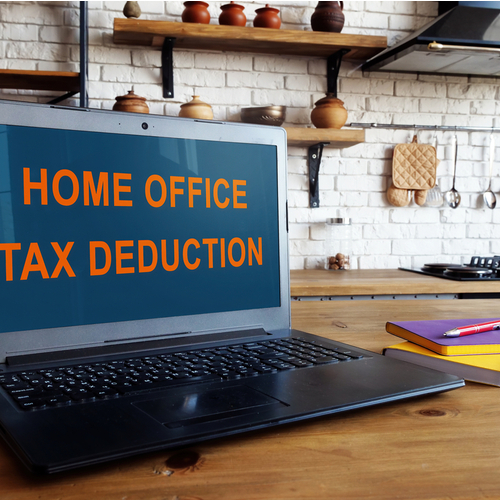HaveUHeard.com includes links to third-party websites and advertisements for third-party products and services. Product and service-specific opinions mentioned within the content of our blogs are entirely the opinions of the HaveUHeard.com team and its staff. It is our hope that you will find value in the products and services these third-party organizations represent, and patronize these businesses. Such advertising and marketing partnerships help make our efforts at HaveUHeard.com possible. Thank you for your support and ongoing interest. For additional information, please read our full HaveUHeard.com Disclosure Statement

What If You WFH During The Pandemic?
Many people are working from home during the COVID-19 pandemic. If you’re one of them, you might wonder, “Can I claim a home office deduction on my 2020 tax return?” The answer is complicated. By and large, the short answer is only if you’re self-employed. Employees can no longer claim home office expenses. Even self-employed taxpayers must follow strict rules to claim a deduction.
Copious write-offs
Second, if you qualify, you can deduct the “direct expenses” of the home office. Specifically, this includes the costs of painting or repairing the home office and depreciation deductions for furniture and fixtures used there. Additionally, you can also deduct the “indirect” expenses of maintaining the office. For example, you can include the allocable share of utility costs, depreciation, and insurance for your home. Other deductions you can consider are the allocable share of mortgage interest, real estate taxes, and casualty losses.
Alternatively, you can use the simplified method for claiming the deduction — $5 per square foot for up to 300 square feet. In fact, although you are not able to depreciate the portion of your home that’s used as an office, you can claim mortgage interest, property taxes, and casualty losses as an itemized deduction to the extent otherwise allowable, without needing to apportion them between personal and business use of the home.
Deduction tests
You can deduct your expenses if you meet any of these three tests:
1. Principal place of business. You’re entitled to home office deductions if you use your home office exclusively and regularly as your principal place of business. Your home office is your principal place of business if it satisfies one of two tests. The “management or administrative activities test” means you use your home office for administrative or management activities of your business. The “relative importance test” refers to if your home office is the most important place where you conduct business, compared with all the other locations where you conduct that business.
2. Meeting place. You’re entitled to home office deductions if you use your home office exclusively and regularly to meet or deal with patients, clients, or customers. The patients, clients, or customers must physically come to the office.
3. Separate structure. You’re entitled to home office deductions for a home office, used exclusively and regularly for business. In order to qualify, the office needs to be located in a separate unattached structure on the same property as your home. In other words, an unattached garage, artist’s studio, or workshop.
You may also be able to deduct the expenses of certain storage space for storing inventory or product samples. If your business involves selling products at retail or wholesale, and your home is your sole fixed business location, you can deduct home expenses allocable to space that you use to store inventory or product samples.
Limitations apply
The amount of home office deductions for self-employed taxpayers is subject to various limitations. Proper planning is key to claiming the maximum deduction for your home office expenses. Contact your CPA for financial advice.
Tracey J Kinker CPA PA
Tracey J Kinker is a practicing CPA for well over four decades. The firm’s expertise ranges from tax management and accounting services and small business consulting to more in-depth services including Estate and Trust tax services, litigation support services, and elder exploitation and elder planning support services. Additionally, she is also one of the founders of HaveUHeard.

Leave A Comment